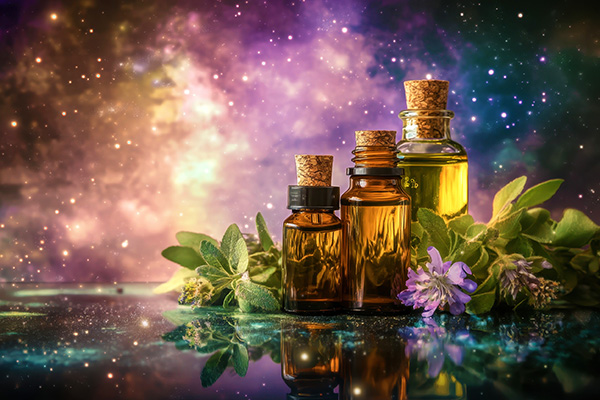How to Generate Your Own Joy
 Too frequently, individuals find themselves ensnared in a dim corner of existence, convinced that true happiness is just out of reach, dependent on the next relationship, salary, career, or home. Yet, genuine joy isn’t discovered through these external endeavors.
Too frequently, individuals find themselves ensnared in a dim corner of existence, convinced that true happiness is just out of reach, dependent on the next relationship, salary, career, or home. Yet, genuine joy isn’t discovered through these external endeavors.
As the Dalai Lama insightfully stated, “Happiness is not something ready-made. It comes from your own actions.” Take a moment to genuinely reflect on that. It’s a beautifully straightforward truth, yet many of us find it difficult to accept.
We were brought up in a society that instructs us to pursue happiness as if it’s something ‘out there,’ merely a success or acquisition away. But here lies the sacred truth: happiness starts from within.
This is a challenging notion for many to grasp. “How can I be happy with nothing?” you may inquire. “I am solitary. I lack a job, funds, or love.”
Nevertheless, the answer is simple yet profound: no one else holds the responsibility for your life. Your happiness is not someone else’s duty. You are the unique architect of your reality.
Your emotional wellness, fulfillment, and overall life experience are not dictated by external forces, others, situations, or fortune. Living your best life commences with you.
Happiness isn’t something that can be bestowed upon you or stripped away. Your thoughts, beliefs, and actions shape whether you experience satisfaction or discontent.
Even when life presents unexpected challenges, your perspective and the way you adapt for growth remain in your hands. This realization is genuinely liberating. If you don’t allow others or external circumstances to govern your happiness, then your joy, serenity, and fulfillment are independent of anyone or anything.
One of the greatest hurdles to achieving happiness in the present isn’t the lack of knowledge about how to attain it. It primarily lies in our failure to actively pursue it. We neglect to carve out time for happiness, peace, and joy in our lives ~ Kumar Anupam
It’s not as though you exist in isolation. Connections, social support, and external influences do impact us. Yet, this mindset prompts you to consider how much influence you wish those elements to exert.
So, ask yourself: at this moment, do you opt for happiness or despair?
Rewrite Your Narrative
Everyone has a narrative. However, your narrative is merely one interpretation of the truth, a single viewpoint. Ask yourself: are you narrating a story that brings you down with each retelling? What if you could alter the storyline?
Rather than stating, “I was mistreated,” consider reframing it: “I’ve evolved through adversity, and now I cherish laughter and resilience. I am liberated, I am complete, and I will never allow anyone to dim my brilliance again.” Even better, rewrite your tale as: “I embrace life’s difficulties, for I am tenacious. I am strong, cheerful, and all is well.”
Embrace The Journey
Cease saying, “When I discover my soulmate, happiness will find me,” or “When I attain my ideal home, then I’ll feel tranquility.” These are misconceptions that keep happiness just out of reach. Instead, affirm: “I am content now. I treasure each step of my journey. When I achieve every milestone, it will be accompanied by a joyous heart.”
Make “Me Time” Sacred
How frequently do you place yourself last in your own life? Start prioritizing yourself. Dedicate time daily to nurture your spirit, whether it’s through quiet reflection, enjoying a cup of tea, walking in nature, or simply taking a pause. When you treat yourself with kindness and respect, others will begin to recognize your value too.
If you can’t carve out even brief moments for yourself each day, it’s time to reassess your life. Something needs to change. Your happiness hinges on it.
Each morning when I awaken, I remind myself: I, not circumstances, have the power to make me happy or unhappy today. I can choose which it shall be. Yesterday is gone, tomorrow isn’t here yet. I have only today, and I’m determined to be happy in it ~ Groucho Marx
Nurture Meaningful Connections
Your bond with yourself must embody profound love, respect, and joy. Your relationship with the Divine, regardless of what you call it—God, Source, Spirit, or Universe—is equally crucial. Communicate with your angels and guides as you would with a close friend. Share laughter with them. Sense their presence in your life, supporting and uplifting you.
And do not isolate others. Value your relationships with friends, family, and partners. Be the one who opens doors. Share laughter, create memories, and let others in. Remember, joy multiplies when shared.
Find Your Equilibrium
Work diligently, yes, but don’t neglect to play. Life isn’t meant to be burdensome daily. If it feels that way, it’s time to question: Where have I neglected to carve out space for joy? When you balance effort with ease, obligations with delight, you reclaim your wholeness.
Choose Joy, Each Day
You are the architect of your happiness. When those around you are joyful, view it as a blessing, but don’t depend on them to generate your happiness. Choose it for yourself. Right now. In this moment.
When was the last time you laughed? Genuinely laughed? Laughter is one of the swiftest methods to elevate your spirits and reconnect with the lightness of being. Whether it’s a humorous meme, a beloved sitcom, or a cherished memory, discover your avenue to laugh heartily. Let it rise from your core and sense your energy transform. That’s your soul expressing gratitude.
Smile. Laugh. Create fresh memories. That’s where peace resides, in the present, in laughter, in the conscious choice to embrace joy.
Look Forward With A Sense Of Wonder
Life resembles driving a car: the rearview mirror is small, while the windshield is expansive. That’s intentional. What’s behind you has indeed shaped you, but what lies ahead holds the greatest significance. Look back only to cherish the love and laughter. Let go of everything else.
|
Sheri is an international psychic and angel reader offering clear insights on finances, careers, relationships, manifesting dreams, and navigating life’s complexities. Since 2004, she has owned an International Spiritual Healing Center where she practices Reiki – both on clients and teaching various levels of Usui Reiki. Her office serves for readings conducted via mail, phone, chat, or in person. Since 2008, she has refined her abilities on multiple psychic service websites, providing telephone, chat, or email readings. She also collaborates on a spiritual network for individuals who have experienced profound loss, drawing from her own firsthand experiences with such tragedies. Described as honest, compassionate, and transformative, Sheri aims to see all her clients ascend to a higher level of spirituality and growth, thereby significantly improving the world. You can get a psychic reading from Sheri at PsychicAccess.com. |
Happiness is a goal that many chase throughout their lives, yet it can often seem distant and unattainable. The comforting truth is that happiness is not something that exclusively hinges on outside situations or other individuals – it is something you can manifest for yourself. By taking ownership of your joy and actively opting to prioritize your well-being, you can foster a lasting and fulfilling sense of contentment.
An essential step in nurturing your own happiness is to engage in self-care. This encompasses caring for your physical, emotional, and mental health on a consistent basis. This might include getting adequate rest, consuming nutritious foods, exercising regularly, and allocating time for activities that bring you relaxation and happiness. By prioritizing self-care, you express love and compassion toward yourself, which can enhance your overall happiness.
Another vital element in crafting your happiness is to foster a positive outlook. This involves concentrating on the blessings in your life, practicing gratitude, and transforming negative thoughts into more affirmative ones. By altering your viewpoint and opting to uncover the silver lining in every circumstance, you train your mind to seek out the positives in life, likely leading to heightened feelings of happiness and satisfaction.
Establishing strong relationships and connections with others is crucial for creating your happiness. Being surrounded by supportive and loving individuals who lift and inspire you can significantly influence your general well-being. By nurturing these bonds and setting aside time for meaningful interactions, you can nurture a sense of community and fulfillment that contributes to your happiness.
Finally, pursuing activities and hobbies that ignite your joy and fulfillment is essential. Whether it’s painting, hiking, cooking, or performing music, immersing yourself in pursuits you are passionate about can elevate your mood and amplify your happiness. By allocating time for these endeavors and prioritizing your interests, you are investing in your well-being and creating a sense of purpose in your life.
In summation, cultivating your happiness is a journey that demands self-awareness, self-care, a positive mindset, nurturing relationships, and engaging in your passions. By seizing control of your joy and consciously deciding to prioritize your well-being, you can nurture a lasting sense of contentment. Keep in mind, happiness is not something handed to you; it is something you have the power to craft for yourself. Continue reading

















